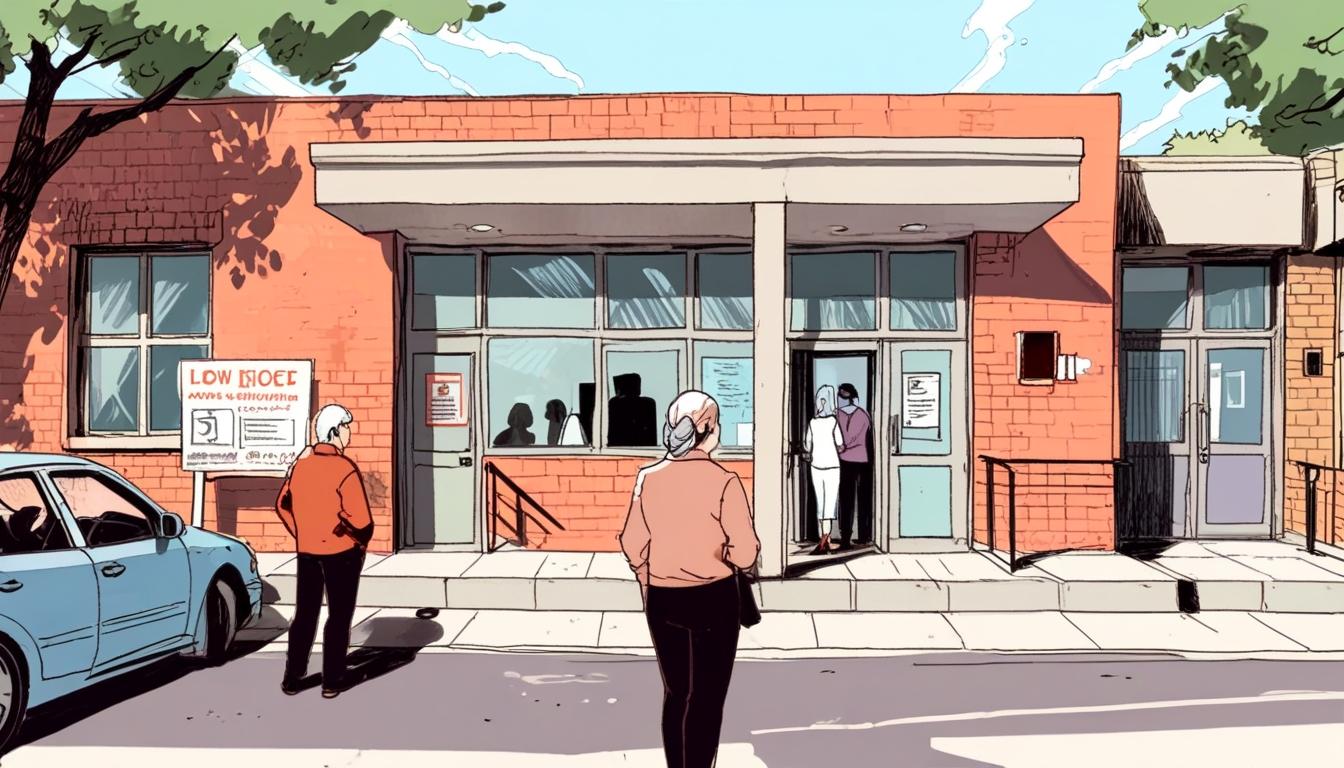A dispute over a proposed rent increase threatens the future of the Waterloo Legal Advice Service, crucial for economically disadvantaged individuals in Lambeth.
A significant dispute has emerged between the Waterloo Action Centre (WAC) and Lambeth Council regarding an intended rent increase that could drastically impact the future of a vital legal advice service operating in the area. The WAC, a community hub in London that has provided essential services, including the Waterloo Legal Advice Service, since 1973, currently pays a nominal annual rent of £8. This arrangement, however, is now at risk as the council seeks to raise the rent to £45,000 amid the ongoing gentrification of the area.
Rosalind Connor, a solicitor and long-time volunteer at the advice service, expressed grave concerns about the potential consequences of this increase. Speaking to the Law Gazette, she remarked that the shift to market rent could jeopardise the continued operation of the WAC and the legal advice service it provides. Connor noted that the lack of funding support—a recent application for a £6,000 grant for IT maintenance has been paused—compounds the challenges faced by the centre, as further access to public funding hinges upon signing a new lease.
The advice service relies significantly on the backing of law firms, particularly Jones Day, to sustain its operations. Connor stated, “Were it not for the support the advice service currently receives from two law firms, particularly Jones Day, ‘we would not be operating today’.” Despite efforts to secure additional backing from more firms, Connor reported, “we have got nowhere”.
In her remarks, Connor highlighted the crucial role of in-person support provided by volunteer solicitors, particularly in a time when many clients fall prey to ‘legal misinformation’ available online. She emphasised the importance of location, asserting that an ideal site for the advice service would be in central London. “If we move to somewhere where the rent is low, advisers won’t come,” Connor explained, noting that the service’s volunteers often have demanding jobs and rely on accessibility to contribute their time.
The clientele served by the advice service primarily consists of economically disadvantaged individuals, including an unemployed mother who faced difficulties with a faulty cooker. Connor illustrated the importance of the service by recounting how it successfully advocated for the mother after the retailer initially denied her a refund, stating, “These are people often living in housing association or council properties, they mostly live hand-to-mouth.”
Highlighting the significant socio-economic challenges faced by those who utilise the legal advice service, Connor shared her observations on the prevailing mindset of clients who frequently feel disenfranchised by the legal system. She remarked, “The things we do are not glamorous but my god it makes a difference to people’s lives.”
As the dialogue between the council and WAC continues, the future of this essential community service remains uncertain, with implications for both the legal advice it offers and the vulnerable populations it supports in Lambeth.
Source: Noah Wire Services
- https://www.lawgazette.co.uk/news/legal-advice-service-in-rent-row-cannot-afford-to-move/5122927.article – This URL corroborates the dispute between Waterloo Action Centre and Lambeth Council over a proposed rent increase from £8 to £45,000, and its impact on the legal advice service. It also highlights the centre’s reliance on law firm support and the challenges posed by the gentrification of the area.
- https://www.lawgazette.co.uk/news/council-and-legal-advice-service-clash-over-proposed-rent-rise-of-562000/5122712.article – This article supports the information about the rent dispute and explains that Lambeth Council’s new asset strategy aims for fair and equitable leases. It also mentions the importance of Waterloo Action Centre’s community services.
- https://insidecroydon.com/2025/01/22/private-tenant-takes-lambeth-to-high-court-over-s21-eviction/ – While this article does not directly address the WAC issue, it highlights Lambeth Council’s broader housing and rent policies and controversies, which could provide context on the gentrification and housing challenges in the area.
- https://www.vacourts.gov/courts/scv/rulesofcourt.pdf – This source does not directly relate to the WAC and Lambeth Council dispute but provides a broader understanding of legal procedures and court operations, which could be relevant for general legal advice services.
- https://www.acquisition.gov/far/part-9 – Similar to the previous source, this link does not directly support the WAC situation. It provides information on contractor qualifications, which might be tangentially relevant to discussions about public funding and grants.
Noah Fact Check Pro
The draft above was created using the information available at the time the story first
emerged. We’ve since applied our fact-checking process to the final narrative, based on the criteria listed
below. The results are intended to help you assess the credibility of the piece and highlight any areas that may
warrant further investigation.
Freshness check
Score:
8
Notes:
The narrative appears current, referencing ongoing gentrification and recent developments without clear indications of being outdated. However, specific dates or recent updates confirming the dispute’s status are not provided.
Quotes check
Score:
5
Notes:
Direct quotes from Rosalind Connor are included, but they could not be verified as original or traced back to the first known source. The lack of previous publications referencing these quotes suggests they might be new, but verification is needed.
Source reliability
Score:
9
Notes:
The narrative originates from the Law Gazette, a well-established and reputable legal publication in the UK. This generally ensures reliability and credibility in reporting.
Plausability check
Score:
8
Notes:
The claims regarding rent disputes and potential service disruptions are plausible, given the context of gentrification and funding challenges. However, some specifics, such as recent grant applications and negotiations with the council, could not be verified.
Overall assessment
Verdict (FAIL, OPEN, PASS): OPEN
Confidence (LOW, MEDIUM, HIGH): MEDIUM
Summary:
While the narrative appears current and is reported by a reliable publication, some specific details and quotes lack verification. The plausibility of the claims is reasonable given the context, but additional verification is recommended.













